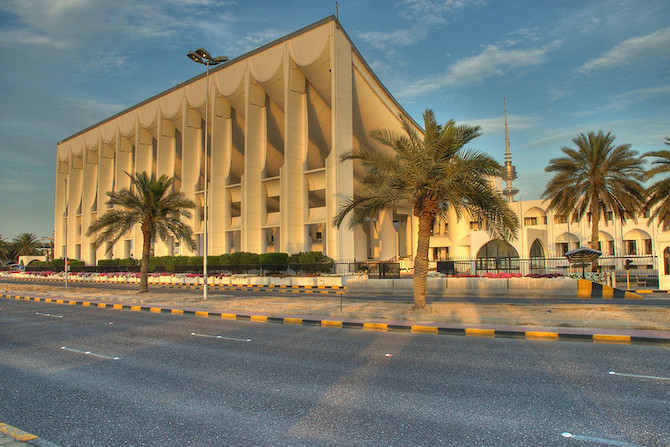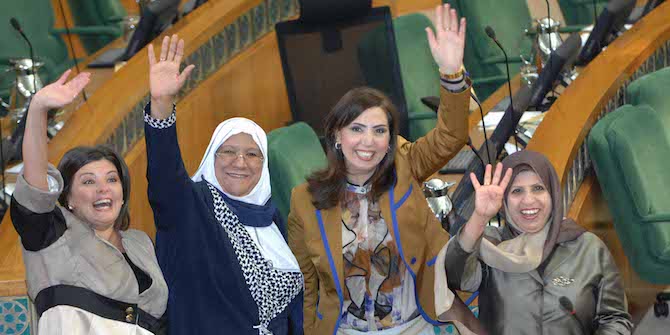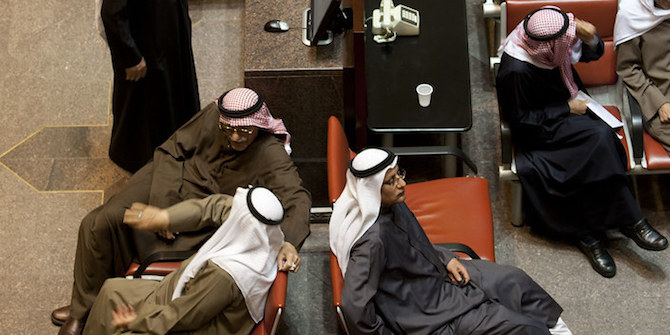by Sharefah Almuhana

The eligibility of candidates including Bader Al-Dahoum standing in Kuwait National Assembly elections has been the subject of many recent court cases. Source: Cajie, Flickr
A discussion on the competent authority, legislature or judiciary to decide the moral aspects of legislation restricting freedom of speech and expression is increasingly essential. This is particularly important after recent judgments delivered by the Kuwaiti courts determining the eligibility of the candidate Bader Al-Dahoum running in the National Assembly elections 2020. The judgments issued by the Court of Appeal and Court of Cassation overturned a previous judgment issued by the Court of First Instance that was in line with several government decisions which barred Al-Dahoum and others from running for office. The implied reasons for the decisions are the lack of a presumed requirement of good reputation and paragraph 2 of article 2 of Kuwait’s parliamentary election law no. 35 of 1962, amended by a special supplement law no. 27 of 2016 that prevents all those convicted by a final judgment for insulting God, the prophets or the head of state from running for office or voting in elections. Al-Dahoum was found guilty by a final judgment in 2014 of a misdemeanour of insulting Kuwait’s head of state.
Interestingly, others in similar cases to Al-Dahoum received prompt judgments by the Court of First Instance which restored their right to run for office. Al-Dahoum received a judgment from the same court that denies his same right. Later, the Court of Appeal and Court of Cassation both determined the inapplicability of paragraph 2 of article 2 of the election law to Al-Dahoum’s case, and therefore, his eligibility to run was confirmed. Eventually, Al-Dahoum ran and won the elections. However, his membership was then invalidated by the Constitutional Court. Al-Dahoum’s case signifies the importance of addressing the second provision of the election law and similar highly controversial ideas or vague provisions in other laws restricting freedom of speech and expression. The executive and judiciary can easily abuse these ideas and provisions. Such abuse has implications on individuals’ rights to participate in political life and other rights.
The situation escalated as allegations were raised over the government’s interference in the parliamentary elections by arbitrarily eliminating some candidates. Furthermore, there were accusations that the courts were arbitrary when applying laws restricting freedom of speech and expression. As a result, duplicative litigation and conflicting decisions have been observed. Moreover, concerns regarding the legitimacy of the retroactive application of the 2016 amendments to the election law by the executive and judiciary on cases preceding the law’s enactment and entry into force have raised doubts that the government is using the judiciary as a weapon to exclude its political opponents.
Although Al-Dahoum’s case mainly concerns the right to run for election, the proposed ideas in this post are applicable to other cases or rights related to freedom of speech and expression. For example, articles 35, 36, 37 and 44 of the Constitution contain provisions that guarantee a wide range of freedoms. However, the same provisions decide restrictions either by referencing a law or other indefinite sources such as morals, customs and public policy. Article 15 of law no. 31 of 1970 amended some provisions of penal law no. 16 of 1960 and is concerned with the state’s security mentions that imprisonment for no less than three years is the penalty for: ‘Any Kuwaiti or settler in Kuwait who intentionally spreads false or tendentious news, statements or rumors abroad about the internal conditions of the country and that undermines the financial confidence or prestige of the state, or initiates in any way an activity that would harm the national interests of the country.’ Article 15 has been used repeatedly as a basis for accusations against Twitter users. Article 12 of public meetings and gatherings law no. 65 of 1979 prohibits non-citizens from participation in processions, demonstrations and gatherings. As a result, the police in Kuwait arrested and deported a Jordanian man for participating in an unauthorised protest and publicly expressing his views against the restrictions announced by the government on unvaccinated people, including denying them the right to enter some public places, as part of the country’s effort to raise the vaccination rate to combat the COVID-19 crisis. Further, article 69 of law no. 17 of 1960 concerns criminal procedures and trials amended by law no. 1 of 2021 and discusses provisional detention. The new amendment abolishes pretrial detention for those who exercise their right to express their opinion, including through social media. However, the amendment was subject to criticism as expressing opinion should not be a crime. Furthermore, imprisonment is still the penalty for expressing opinion according to the penal law and other laws. The amendment allows for arbitrary provisional detention. As evidence, refer to the case of the activist Jamal Al-Sayer who was provisionally detained for expressing his thoughts in Twitter.
To sum up, the main factors for the current chaotic situation are the vague words or phrases and the uncertainty regarding the authority responsible for their interpretation. Therefore, understanding the primary source of law and the role of the legislature and judiciary within the Kuwaiti civil law system is vital to preserve the separation of powers and thus to avoid conflicts.
Civil law jurisdictions have legislation as a primary source of law. The legislature has responsibility for creating and updating codes. The courts decide every case based on the codes. Courts do not have discretion in adding, amending or cancelling any provision. Precedents should not influence future judgments in similar cases. Judges do not have broad freedom in law interpretation. On rare occasions, judges may rely on customs to resolve legal controversy that is not yet or sufficiently covered by a code. Thus, it would be acceptable for the courts to interpret unclear laws once or twice, but this situation should not persist for a long time. Otherwise, the civil law system will lose one of its main traits that distinguish it from the common legal system. As a result, the legislature, not judges, should decide the morality of legislation.
Correction requires the legislature to reconsider unclear provisions. The reconsideration of provisions may take two forms: first, revoking provisions that determine restraints on rights and freedoms, second, modulating provisions by determining their meanings and applications, for example, determining the conduct that contribute to ‘bad reputation’. Alternatively, creating independent bodies and/or empowering civil society organisations to interpret provisions with moral concerns.






